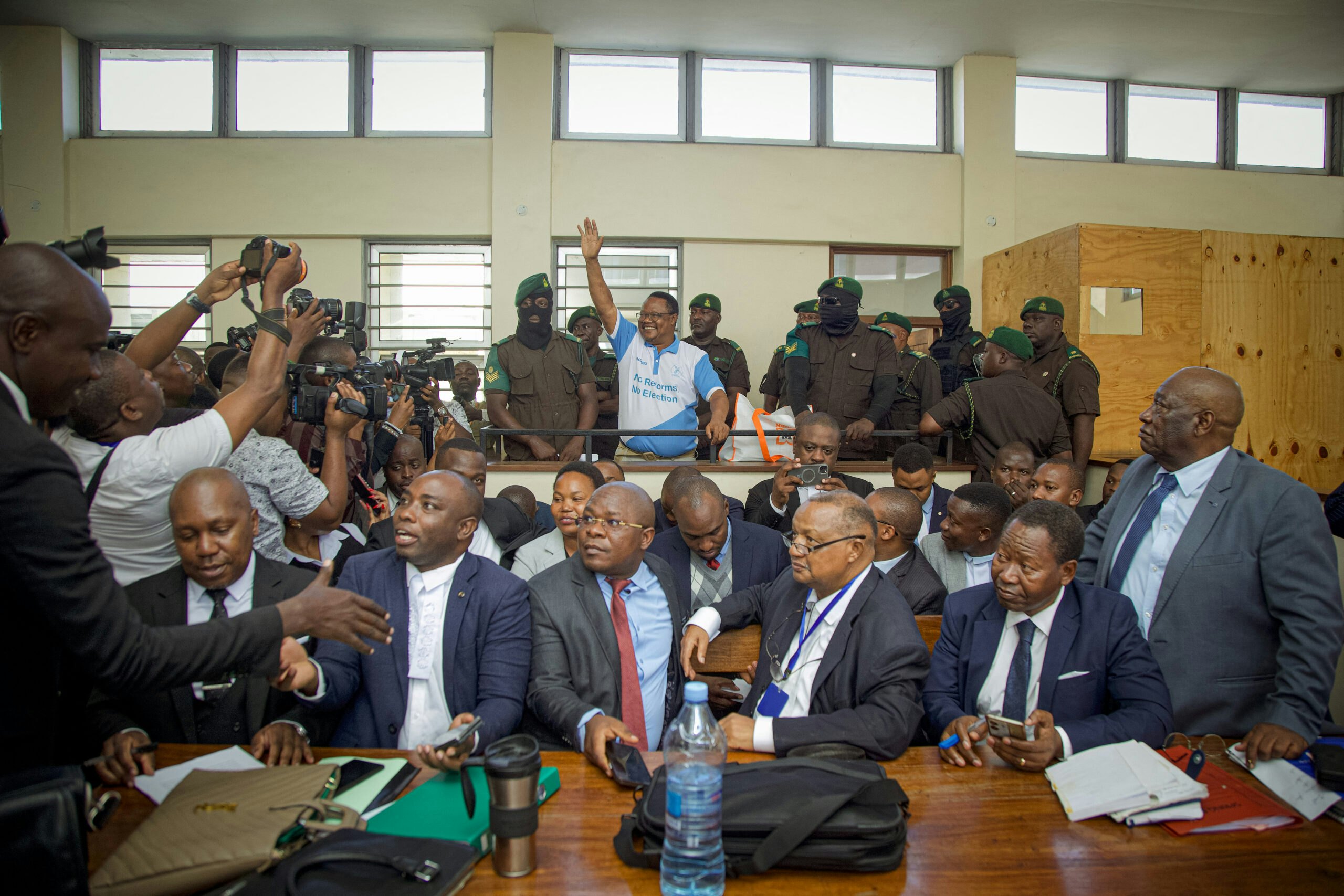When Tanzania’s general elections take place on Oct. 29, they will be neither free nor fair as the leader of the country’s main opposition party is on trial for treason.
Tundu Lissu, the leader of Tanzania’s main opposition party, Chadema, who was widely expected to run, has been imprisoned since April 9, before he could register his candidacy for the presidential election. He could face the death penalty if convicted.
He was arrested after speaking at a public rally for Chadema’s “No Reform, No Elections” campaign that police disrupted with excessive force. His alleged crime, according to the charges, stemmed from a social media video in which Lissu urged fellow citizens to support calls for major electoral reforms as a precondition for participating in the October general elections.
The United States, which for the past several decades emphasized monitoring the quality of elections around the world, should apply pressure to the Tanzanian government to implement electoral reforms that can stave off potential instability in the country.
Lissu previously ran for president in 2020 against the late John Magufuli in elections that were condemned by the international community as highly flawed. Magufuli led the dominant Chama Cha Mapinduzi (CCM) political party, which exclusively ruled the country from Tanzania’s independence in 1961 until multiparty democracy was introduced in 1992. But the established CCM continued to win elections that were seen as somewhat competitive but in which younger opposition parties remained relatively weak.
Repression after the 2020 election prompted Lissu to flee Tanzania for exile in Belgium. He didn’t return until 2023, after Magufuli’s 2021 death and the succession of his vice president, Samia Suhulu Hassan.
Despite hopes that Hassan would support democratic opening and reforms, civil society advocates and opposition leaders have faced ongoing repression, arrests, and even disappearances during her tenure. Hassan is currently running for a second term, and the current treason allegations against Lissu likely signal that she feels emboldened to leverage the full weight of Tanzania’s legal institutions to prosecute one of her most vocal and visible democratic challengers, as her predecessor did.
Repression increased after Magufuli’s first election to the Tanzanian presidency in 2015 – particularly as opposition leaders including Lissu began to pose a more serious electoral challenge.
Lissu was brazenly targeted for assassination in 2017 while he served as a member of parliament. He suffered 16 bullet wounds in a midday attack after leaving a parliamentary session and required emergency medical evacuation to Kenya and then to Belgium for specialized treatment. The head of Tanzania’s parliament revoked Lissu’s parliamentary seat in 2019 over alleged “absenteeism” during his lengthy recovery and rehabilitation.
Since accusing Lissu of treason this year, Tanzania’s authorities have gone to great lengths to intimidate his supporters and prevent media coverage and observation of his trial, which was repeatedly postponed over the summer and resumed Oct. 6.
In June, two prominent democracy advocates who came to Tanzania to demonstrate their solidarity and attend a court hearing for Lissu – Boniface Mwangi from Kenya and Agather Atuhaire from Uganda – were arbitrarily detained, sexually assaulted, and tortured by Tanzanian security forces. After being held for several days, they were dumped near the country’s border and threatened with worse if they returned to Tanzania. Other foreign dignitaries, journalists, lawyers, and activists who had planned to travel from Kenya to observe Lissu’s trial were prevented from entering Tanzania.
Shortly after Lissu’s arrest, Chadema was barred from fielding candidates until 2030 because Lissu and other party leaders refused to sign an ethical code of conduct without structural electoral reforms. Tanzania’s electoral commission in mid-September disqualified another opposition party’s presidential candidate, Luhaga Mpina of the Alliance for Change and Transparency, from running in October.
But even before his arrest this year, Lissu and another Chadema politician, Freeman Mbowe, were arrested and beaten in the leadup to November 2024 local elections. Other Chadema party officials and politicians were also abducted, beaten, and killed – among 48 attacks against human rights defenders documented last year by the Tanzanian Human Rights Defenders Coalition.
In short, Lissu has endured legal harassment, repeated arrests and detentions, and threats to his life throughout his career as a lawyer, environmental and anticorruption advocate, and politician.
Democratic backsliding in Tanzania has occurred during a period of declining U.S. engagement in sub-Saharan Africa. At the same time, the leaders of other neighboring countries and regional bodies have been reluctant to hold Tanzania’s government accountable for intensifying repression and manipulation of the electoral process.
The United States and other democracies should employ a mix of incentives and pressure on the Tanzanian government to unconditionally drop the charges against Lissu, permit political parties to field their chosen candidates, and implement reforms that will restore credibility to the country’s electoral process.
Rising unemployment and underemployment among Tanzania’s huge population of young people – more than three-quarters of citizens are below the age of 35 – increase the risk of instability if frustration grows over a chronic lack of opportunities for economic advancement, ineffective governance, and the ability to hold political leaders accountable.
How the world responds to Lissu’s prosecution, the marginalization and intimidation of political actors, and the outcome of Tanzania’s elections will have repercussions for freedom and stability in East Africa and beyond.






























